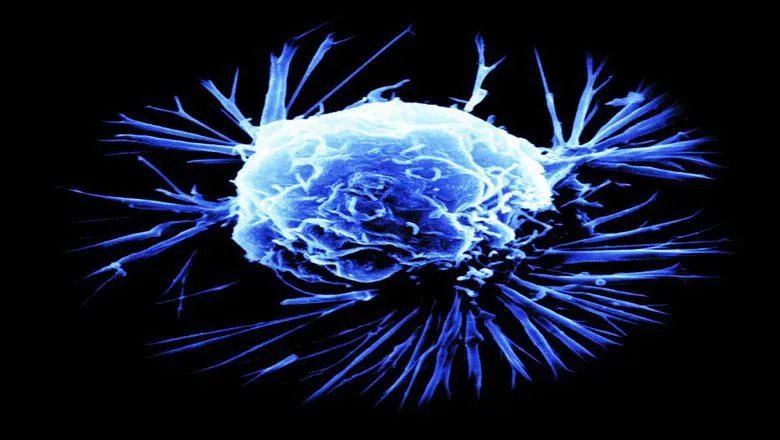17 December 2018
Fight against breast cancer - new target identified
Researchers from King's have identified a potential target that could lead to new treatments for triple negative breast cancer.

One in five patients with breast cancer are diagnosed with triple negative breast cancer, a cancer type where tumour cells don’t have receptors for oestrogen and progesterone, or the Her2 protein. Because of this, hormone treatments and the targeted drug Herceptin don’t work in patients with this type of cancer.
To improve outcomes for women with this form of cancer, research that could increase the available treatment options is vital.
In a paper published in Clinical Cancer Research, King's researchers have identified a potential avenue for developing new treatments. They found that many triple negative breast cancer tumours have a molecule on their surface called folate receptor alpha, and that antibodies for the receptor can be targeted directly to these cancer cells.
The research suggests that antibody immunotherapies could be effective, as these prime the immune system to recognise and attack cancer cells. Possible new treatments could also link antibodies for the receptor molecule to drugs that attack cancer cells and target the treatment directly to tumours.
The researchers used a range of methods to understand how the antibodies might be targeted. They looked at Folate Receptor alpha expression in samples from over three thousand triple negative breast cancer tumours. They also looked at the effects of antibodies on folate receptor alpha in cells in a dish, and in tumour xenografts.
Dr Sophia Karagiannis, Reader in Translational Cancer Immunology at St John’s Institute of Dermatology said: “Having identified antibodies against this novel target that are able to restrict the growth of Triple Negative Breast Cancer cells in the laboratory, we are now concentrating on bringing forth a new generation of more effective antibody therapy approaches. Our ultimate aim is to translate the most promising of these to clinical testing in patients.”
At the moment, the research shows that Folate Receptor alpha might be a potential target for new treatments, but it will take time to develop effective treatments, and to run the clinical trials required to make sure the treatments are safe and effective.
Professor Andrew Tutt, Director of the Breast Cancer Now Research Unit at King’s College London said: "Through our combined strengths in breast cancer biology, cancer immunology, antibody engineering, and translation of targeted therapies at the Breast Cancer Now Unit at King’s, we are able to venture beyond existing conventional treatments, identify new targets on cancer cells and develop new agents for therapy never before examined in breast cancer.
"But it’s important to remember that this research is at an early stage, and further work is needed in the laboratory before we know if these could develop into treatments for patients."
The research was supported by the NIHR Biomedical Research Centre at Guy’s and St Thomas’ and King’s College London.
